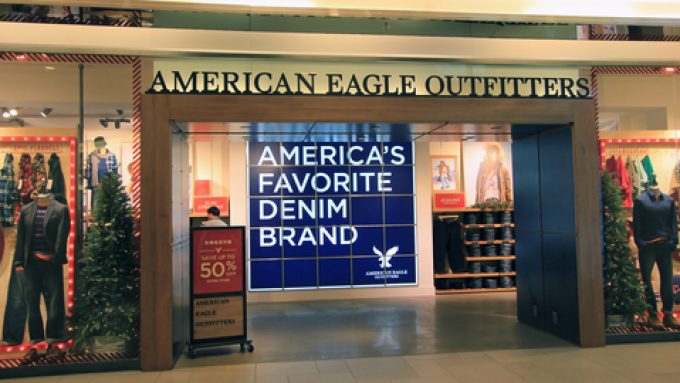US cargo owners cool on active logistics as markets slow
US cargo owners appear to have lost their appetite for investing in the active management ...

Top US brands and retailers are betting on a collaborative platform to give them faster as well as cheaper delivery options than the traditional fulfilment channels.
American Eagle Outfitters and others are using newly launched Quiet Platforms to move their products to customers around the country.
The operation is based on the concept of pooling the carrier contacts of the brands and retailers of all sizes participating in the venture, and shipping parcels with a universal delivery label.
To date, this has equipped Quiet Platforms with some 40 carriers, ranging from small local and regional players to nationwide outfits, including DHL eCommerce Solutions and global shipping and mailing firm Pitney Bowes.
The project was developed under the leadership of Shekar Natarajan, EVP and chief supply chain officer of AEO, and head of Quiet Platforms. His concerns about supply chain vulnerability were confirmed in the disruptions in the wake of the Covid outbreak, which led AEO to seek “a more reliable, flexible and sustainable solution”.
He said: “We are reimagining the way retailers and brands deliver service to their customers, while taking on the complexity of logistics. We’re levelling the playing field by offering high-quality delivery experiences without prohibitively high investments in management and technology infrastructure.
“Our ecosystem also gives carriers the opportunity to reach a wide range of new customers without lengthy lead times or complexity.”
In November, AEO acquired Quiet Logistics for $350m, and it is now run as a standalone subsidiary operating a network of fulfilment centres in Boston, Chicago, Los Angeles, Dallas, St. Louis and Jacksonville, providing same- and next-day services to customers and stores.
It was also bringing some technology muscle into the fold, having deployed advanced robotics in warehouse automation. Technology is a key component in the shipper network concept.
Besides the use of robotics and smart sortation, network management itself is a primary target area. The network dynamically manages performance at the shipment level to come up with the best possible routing decision for every parcel, based on delivery commitment, quality of service and cost. This, combined with the strategy of deferring carrier assignment to the edge of the network, has significant ramifications for performance and cost.
“Quiet Platforms is reinventing traditional approaches to fulfilment and delivery,” claimed Charles Griffith, the firm’s CTO. “Providing the ability to dynamically adjust fulfilment and delivery decisions in real time based on an ever-changing set of constraints is something others have contemplated, but never achieved.”
According to Quiet Platforms, its approach allows it to deliver parcels one-two days faster while achieving delivery cost reductions of up to $1 per parcel.
Another aspect of the technology is the plug-and-play, open-sharing platform that allows new participants to come on board without a need for custom integration or lengthy setting up procedures.
So far, the network has attracted about 60 companies, including small retailers and major brands like Peloton, Steve Madden and Li & Fung.
On the carrier side, the system deliberately builds-in some redundancy in key markets to ensure capacity is available during demand peaks.
While participating merchants bring in their carrier contacts, Quiet Platforms is also striking strategic deals with major logistics and fulfilment players.
In May, it signed an agreement with Pitney Bowes for value-added carrier services, and the partnership with DHL eCommerce Solutions, unveiled on 2 August, was struck to establish a “date-definitive delivery service” to allow customers to schedule deliveries. And the partners plan to develop new services.
The latest addition to the pool is Harte Hanks, which provides partners with “data-driven analytics and actionable insights, combined with seamless programme execution”. It has been selected as the preferred middle-mile logistics manager.
Expansion is on the cards on all fronts. Last month, the company opened a fulfilment centre in Atlanta which is set to use mobile autonomous robots.
“Our vision is to create an interoperable network,” Mr Natarajan said. “In an open and sharing network, you are able to scale in a decentralised way without having to invest in assets and resources.”
Comment on this article